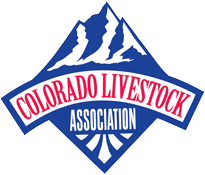The 2020 Special Session of the State Legislature began and ended this last week, within a 3 day period. Below are the 10 bills that passed and have been or will be signed by the Governor.
The special session was also used as a dry run to see how smoothly the expanded and wider use of remote participation will work when the regular session convenes next month (a strong majority of legislators participated remotely this week).
2020 Special Session Bills
HB20B – 1001 Expanding internet access for remote learning
The bill creates a grant program for local education providers to increase broadband access for students and staff, especially low income and rural Coloradoans. Schools with high enrollment of free and reduced lunch programs will be prioritized. The Department of Education will receive $20 million to distribute as grants.
HB20B – 1002 Emergency relief for child care
This legislation will provide $45 million in grants through two existing programs for licensed child care providers. The grants will provide economic relief for child care providers as well as allow expansion and addition of staff to help parents struggling to work and take care of children during the pandemic.
HB20B – Food Pantry Assistance
The Department of Human Services will receive $5 million to expand its assistance for food bank and delivery organizations. Grant applications can be approved between now and the end of February and will be required to distribute food by the end of the fiscal year on June 30, 2021.
HB20B – 1004 Temporary sales tax reduction for restaurants and bars
This legislation permits bars, restaurants, food trucks and vintners to retain up to $2,000 in state sales tax collections per month up to a maximum of $8,000 between now and the end of February 2021.
HB20B – 1005 Local control of food delivery fees
This legislation grants local governments authority to regulate third-party food delivery fees during declared public health emergencies. Home rule cities such as Denver are already putting restrictions in place to help restaurants who’s businesses were suffering from payments as high as 50% for delivery of take out food. This bill grants this same authority to all local governments in the State.
HB20B – 1006 Insurance premium tax payments and credits
This bill amendment HB20-1413 and adds more money for the insurance premium tax credit which the state will bond in mid-December. This will increase the size of the State’s small business loan fund.
SB20B – 001 Small business and arts organization relief
This bill appropriates $57 million in relief money for small business and arts organizations. This includes $4 million set aside specifically for minority -owned businesses. Small businesses hit hard by the pandemic can apply for direct relief payment of up to $7,000, including restaurants, bars, salons, movie theaters and gyms. The bill was controversial because it prohibits payments to organizations in counties which are refusing to comply with state public health orders. Eventually at the insistence of conservative Republicans from Weld County an amendment was added to allow some businesses to qualify in counties which are not complying.
SB20B – 002 Housing relief
This bill adds $54 million in housing assistance for vulnerable people and for landlords who are struggling with late or no rent payments. The bill sets aside $5 million for renters who have been ineligible for other government relief programs (including potentially undocumented residents), and $1 million for eviction legal defense.
SB20B – 003 Utility assistance
The bill transfers $5 million to Energy Outreach Colorado to help low-income Coloradoans pay their utility bills related to energy. During House Committee consideration Rep Kyle Mullica (D-Northglenn) attempted to expand the scope of the bill to include water utility assistance. Despite widespread committee support, Mullica was yanked out of committee by the Speaker and scolded for trying to change the bill. Subsequently, he withdrew the amendment with promises to bring the idea back in January.
SB20B – 004 Disaster relief
This bill directs $100 million to the disaster emergency fund and toward public health and emergency response expenses, principally public health-related programs which will be administered by the Governor’s office.
– Steve Holdren, CLA Lobbyist
